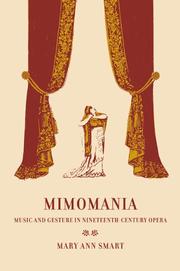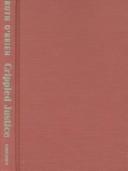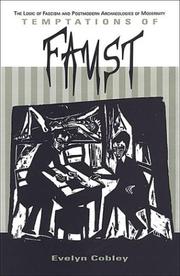| Listing 1 - 10 of 13 | << page >> |
Sort by
|
Book
ISBN: 1932069127 Year: 2003 Publisher: Baltimore National Information Services Corporation (NISC)
Abstract | Keywords | Export | Availability | Bookmark
 Loading...
Loading...Choose an application
- Reference Manager
- EndNote
- RefWorks (Direct export to RefWorks)
Muziek -- Tijdschriften -- Indexen --- Music -- Periodicals -- Indexes --- Musique -- Périodiques -- Index --- Modern Music (New York, Verenigde Staten) -- Indexen --- Modern Music (New York, United States) -- Indexes --- Modern Music (New York, Etats-Unis) -- Index --- Music --- Periodicals --- League of Composers' review --- Modern music (New York, N.Y.)
Book
ISBN: 3839464986 Year: 2022 Publisher: Bielefeld : transcript,
Abstract | Keywords | Export | Availability | Bookmark
 Loading...
Loading...Choose an application
- Reference Manager
- EndNote
- RefWorks (Direct export to RefWorks)
Erhabenheit scheint ein angestaubtes ästhetisches Konzept zu sein. Doch Musik und Klangkunst konfrontieren uns seit dem 20. Jahrhundert mit Werken, in denen Stille und lange Dauern selbst zu überwältigenden Akteuren werden. Sonja Heyer entwickelt aus der Akteur-Netzwerk-Theorie und dem kritischen Posthumanismus das Konzept der transformativen Erhabenheit. Darin überlässt sich der Mensch nicht einer metaphysischen Ewigkeit, sondern wird Teil eines lebendigen ästhetischen Netzwerkes. Neben Werkanalysen dienen auch erstmalig veröffentlichte Interviews mit Mitgliedern der Komponistengruppe wandelweiser der empirischen Fundierung dieser neuen Entwicklung in der zeitgenössischen Musik.
Wandelweiser Komponisten Ensemble. --- Actor-network-theory. --- Aesthetics. --- Art. --- Cultural History. --- Duration. --- Modern Music. --- Music History. --- Music. --- Musicology. --- Philosophy of Culture. --- Posthumanism. --- Sound. --- Time.
Book
ISBN: 3839449324 9783839449325 9783837649321 Year: 2021 Publisher: Bielefeld transcript
Abstract | Keywords | Export | Availability | Bookmark
 Loading...
Loading...Choose an application
- Reference Manager
- EndNote
- RefWorks (Direct export to RefWorks)
Außermusikalische Prinzipien des Spiels - freie wie streng regelbasierte - können Kompositionsprozesse, Aufführungssituationen oder Rezeptionsvorgänge prägen und bestehende Denkmuster aufbrechen. Daher hat der Spielbegriff als ästhetische Kategorie in den Künsten des 20. Jahrhunderts deutlich an Relevanz gewonnen und bis heute entstehen vielfältige kompositorische Konzepte, die Formen, Interaktionen und Oberflächen von analogen wie digitalen Spielen adaptieren. Die Beiträger*innen aus den Bereichen Komposition, Musik- und Kulturwissenschaft und Spieleentwicklung untersuchen markante Beispiele, in denen auf je eigene Weise Musik und Spiel als zwei eigenständig gewachsene Kulturformen zusammengeführt werden.
Musik; Spiel; Kultur; Computerspiel; Zeitgenössische Musik; Adaption; Ästhetik; Spielbegriff; Popkultur; Klang; Musikwissenschaft; Computerspiele; Kulturwissenschaft; Music; Play; Culture; Computer Game; Modern Music; Aesthetics; Concept of Play; Popular Culture; Sound; Musicology; Computer Games; Cultural Studies --- Adaption. --- Aesthetics. --- Computer Game. --- Computer Games. --- Concept of Play. --- Cultural Studies. --- Culture. --- Modern Music. --- Musicology. --- Play. --- Popular Culture. --- Sound.
Book
ISBN: 1787440044 1580465935 Year: 2017 Publisher: Rochester : University of Rochester Press,
Abstract | Keywords | Export | Availability | Bookmark
 Loading...
Loading...Choose an application
- Reference Manager
- EndNote
- RefWorks (Direct export to RefWorks)
All-new interviews with 33 of the world's leading composers--from Adams and Crumb to Gubaïdulina and Rihm--give unique insights into the creative process.
Composers --- Music --- Courage. --- History and criticism. --- Bravery --- Courageousness --- Dauntlessness --- Fearlessness --- Heroism --- Intrepidity --- Intrepidness --- Valiance --- Valiancy --- Valiantness --- Valor --- Valorousness --- Conduct of life --- Heroes --- Art. --- Composer. --- Conductor. --- Friedrich Cerha. --- Georg Friedrich Haas. --- George Crumb. --- Giya Kancheli. --- Gyorgy Kurtag. --- Helmut Lachenmann. --- John Adams. --- Libby Larsen. --- Modern music. --- Music history. --- Music. --- Musicology. --- Robert Morris. --- Sofia Gubaidulina. --- Wolfgang Rihm.
Book
ISBN: 9781783272105 1783272104 9781787441835 1787441830 Year: 2018 Publisher: Suffolk Boydell & Brewer
Abstract | Keywords | Export | Availability | Bookmark
 Loading...
Loading...Choose an application
- Reference Manager
- EndNote
- RefWorks (Direct export to RefWorks)
A detailed study of the well-known, yet poorly understood, music theory of composer Paul Hindemith (1895-1963).
Musical intervals and scales --- Musical analysis --- Composers --- Music theory --- History --- Hindemith, Paul, --- Criticism and interpretation. --- Composition (Music) --- Composing (Music) --- Music --- Music composing --- Music composition --- Musical composition --- Concertante style --- Composition --- Khindemit, Paulʹ, --- Khindemit, P. --- Hindemith, P. --- Merano, Paul, --- Hindemith, Paul --- Theory --- Muziekanalyses --- Compositietechnieken --- Componisten --- Duitsland --- 20e eeuw --- Acoustic Music Theories. --- Composer. --- Composition. --- Compositional Practice. --- Hindemith's Theory. --- Modern Music. --- Music Theory. --- Musician. --- Musicology. --- Paul Hindemith. --- Twentieth Century.

ISBN: 1282358545 9786612358548 0520939875 1597347531 9780520939875 0520239954 9780520239951 9781597347532 1417545348 9781417545346 9780520248311 0520248317 9781282358546 6612358548 Year: 2004 Publisher: Berkeley University of California Press
Abstract | Keywords | Export | Availability | Bookmark
 Loading...
Loading...Choose an application
- Reference Manager
- EndNote
- RefWorks (Direct export to RefWorks)
When Nietzsche dubbed Richard Wagner "the most enthusiastic mimomaniac" ever to exist, he was objecting to a hollowness he felt in the music, a crowding out of any true dramatic impulse by extravagant poses and constant nervous movements. Mary Ann Smart suspects that Nietzsche may have seen and heard more than he realized. In Mimomania she takes his accusation as an invitation to listen to Wagner's music-and that of several of his near-contemporaries-for the way it serves to intensify the visible and the enacted. As Smart demonstrates, this productive fusion of music and movement often arises when music forsakes the autonomy so prized by the Romantics to function mimetically, underlining the sighs of a Bellini heroine, for instance, or the authoritarian footsteps of a Verdi baritone. Mimomania tracks such effects through readings of operas by Auber, Bellini, Meyerbeer, Verdi, and Wagner. Listening for gestural music, we find resemblance in unexpected places: between the overwrought scenes of supplication in French melodrama of the 1820's and a cluster of late Verdi arias that end with the soprano falling to her knees, or between the mute heroine of Auber's La Muette de Portici and the solemn, almost theological pantomimic tableaux Wagner builds around characters such as Sieglinde or Kundry. Mimomania shows how attention to gesture suggests a new approach to the representation of gender in this repertoire, replacing aural analogies for voyeurism and objectification with a more specifically musical sense of how music can surround, propel, and animate the body on stage.
Gestes à l'opera. --- Opera --- Gesture in opera. --- Comic opera --- Lyric drama --- Opera, Comic --- Operas --- Drama --- Dramatic music --- Singspiel --- History and criticism --- 19th century. --- attention to gesture. --- auber. --- beauty. --- bellini. --- drama. --- famous composers. --- gestural music. --- live music. --- melodrama. --- meyerbeer. --- mimetic functions. --- mimomania. --- modern music. --- music and gesture. --- music criticism. --- music critics. --- music historians. --- music history. --- music studies. --- musical figures. --- musicians. --- musicology. --- nervous movements. --- nonfiction. --- opera composition. --- opera. --- pantomime. --- physical experiences. --- richard wagner. --- romantic period. --- verdi.

ISBN: 0520928156 1597348120 9786612445729 1282445723 9780520928152 0585468605 9780585468600 0520218094 9780520218093 0520232240 9780520232242 9781282445727 9781597348126 6612445726 Year: 2001 Publisher: Berkeley : University of California Press,
Abstract | Keywords | Export | Availability | Bookmark
 Loading...
Loading...Choose an application
- Reference Manager
- EndNote
- RefWorks (Direct export to RefWorks)
After a hundred years of recording, the process of making records is still mysterious to most people who listen to them. Records hold a fundamental place in the dynamics of modern musical life, but what do they represent? Are they documents? Snapshots? Artworks? Fetishes? Commodities? Conveniences? The Poetics of Rock is a fascinating exploration of recording consciousness and compositional process from the perspective of those who make records. In it, Albin Zak examines the crucial roles played by recording technologies in the construction of rock music and shows how songwriters, musicians, engineers, and producers contribute to the creative project, and how they all leave their mark on the finished work. Zak shapes an image of the compositional milieu by exploring its elements and discussing the issues and concerns faced by artists. Using their testimony to illuminate the nature of record making and of records themselves, he shows that the art of making rock records is a collaborative compositional process that includes many skills and sensibilities not traditionally associated with musical composition. Zak connects all the topics--whether technical, conceptual, aesthetic, or historical--with specific artists and recordings and illustrates them with citations from artists and with musical examples. In lively and engaging prose, The Poetics of Rock brilliantly illustrates how the musical energy from a moment of human expression translates into a musical work wrought in sound.
Rock music --- Sound recordings --- Sound --- Disk recording --- Recording of sound --- Reproducing of sound --- Sound recording and reproducing --- Sounds --- Sound recordings direction --- Sound recordings production --- History and criticism. --- Production and direction. --- Recording and reproducing. --- Recording and reproducing --- Direction --- artist. --- artistic. --- contemporary music. --- creative. --- creativity. --- engineers. --- famous music. --- famous musicians. --- modern music. --- music artist. --- music composition. --- music history. --- music industry. --- musical arrangement. --- musicians. --- poetics. --- producers. --- record artist. --- record industry. --- recording music. --- recording. --- rock and roll. --- rock music. --- songwriters. --- sound engineer. --- vinyl music. --- vinyl records.

ISBN: 0802036570 9780802036575 9786612022807 1282022806 144268044X 9781442680449 9781282022805 Year: 2002 Publisher: Toronto
Abstract | Keywords | Export | Availability | Bookmark
 Loading...
Loading...Choose an application
- Reference Manager
- EndNote
- RefWorks (Direct export to RefWorks)
Temptations of Faust is a theoretical analysis of the conceptual paradigms that allowed German fascism to emerge in a highly civilized nation. Analyzing these paradigms through the dual lens of Thomas Mann's novel Doctor Faustus, his self-confessed parable of fascism about the avant-garde composer Adrian Leverknhn, and Theodor W. Adorno's Philosophy of Modern Music, this cultural study draws on aesthetic, sociohistorical, political, and philosophical discourses to conclude that German fascism is at once continuous and discontinuous with the emancipatory ambitions of modernity. Drawing on Adorno's sociohistorical critique of avant-garde music, Cobley connects Leverknhn's radical aesthetic innovation with Hitler's radical reconfiguration of Germany's administrative apparatus and discovers that postmodern processes of fragmentation may well remain complicit with the totalizing tendencies they seek to disrupt. This lucid and sophisticated book demonstrates that Doctor Faustus provides a more astute understanding of German fascism than Mann is usually given credit for.
Nationaal-socialisme --- National socialism --- National-socialisme --- Nazism --- Nazisme --- Political philosophy. Social philosophy --- Jewish religion --- Adorno, Theodor W. --- Mann, Thomas --- anno 1940-1949 --- Fascism --- Fascisme --- Holocaust, Jewish (1939-1945) --- Holocauste, 1939-1945 --- National socialism. --- Nazisme. --- Philosophy. --- Philosophie. --- Causes. --- Neo-fascism --- Authoritarianism --- Collectivism --- Corporate state --- Synarchism --- Totalitarianism --- Nazis --- Neo-Nazism --- World War, 1939-1945 --- Causes --- Mann, Thomas, --- Adorno, Theodor W., --- Adorno, Theodor Wiesengrund --- Philosophy --- Holocaust [Jewish ] (1939-1945) --- Philosophie der neuen Musik. --- Doktor Faustus. --- Philosophie der neuen Musik (Adorno, Theodor W.) --- Doktor Faustus (Mann, Thomas) --- Philosophy of modern music (Adorno, Theodor W.) --- Philosophy of new music (Adorno, Theodor W.)
Book
ISBN: 1280108746 9786613520661 0520951522 0520267680 9780520951525 9781280108747 9780520267688 6613520667 Year: 2012 Publisher: Berkeley, California : University Of California Press,
Abstract | Keywords | Export | Availability | Bookmark
 Loading...
Loading...Choose an application
- Reference Manager
- EndNote
- RefWorks (Direct export to RefWorks)
This pathbreaking study links two traditionally separate genres as their stars crossed to explore the emergence of multiple selves in early modern Italian culture and society. Mauro Calcagno focuses on the works of Claudio Monteverdi, a master of both genres, to investigate how they reflect changing ideas about performance and role-playing by singers. Calcagno traces the roots of dialogic subjectivity to Petrarch's love poetry arguing that Petrarchism exerted a powerful influence not only on late Renaissance literature and art, but also on music. Covering more than a century of music and cultural history, the book demonstrates that the birth of opera relied on an important feature of the madrigalian tradition: the role of the composer as a narrative agent enabling performers to become characters and hold a specific point of view.
Petrarchism. --- Monteverdi, Claudio, --- Love poetry, European --- Monteverdi, Claudio --- Opera. --- Madrigals --- History and criticism. --- Madrigals - History and criticism. --- Monteverdi, Claudio, - 1567-1643. - Operas. --- Monteverdi, Claudio, - 1567-1643. - Madrigals. --- art and poetry. --- classical music. --- composer history. --- early modern period. --- european history. --- european poetry. --- history of opera. --- italian culture. --- italian history. --- italian music. --- italian poetry. --- italy and music. --- live entertainment. --- madrigral history. --- modern music studies. --- music and performance. --- music history. --- opera books. --- opera composers. --- opera music. --- performance studies. --- performing arts history. --- performing arts. --- renaissance art. --- renaissance literature. --- renaissance period. --- theater. --- theatre. --- vocal music.
Book
ISBN: 0520943872 9780520943872 9780520257405 0520257405 Year: 2009 Publisher: Berkeley, Calif. London University of California Press
Abstract | Keywords | Export | Availability | Bookmark
 Loading...
Loading...Choose an application
- Reference Manager
- EndNote
- RefWorks (Direct export to RefWorks)
In a book that challenges modernist ideas about the value and role of music in Western society, Composing the Citizen demonstrates how music can help forge a nation. Deftly exploring the history of Third Republic France, Jann Pasler shows how French people from all classes and political persuasions looked to music to revitalize the country after the turbulent crises of 1871. Embraced not as a luxury but for its "public utility," music became an object of public policy as integral to modern life as power and water, a way to teach critical judgment and inspire national pride. It helped people to forget the past, voice conflicting aspirations, and imagine a shared future. Based on a dazzling survey of archival material, Pasler's rich interdisciplinary work looks beyond elites and the histories their agendas have dominated to open new windows onto the musical tastes and practices of amateurs as well as professionals. A fascinating history of the period emerges, one rooted in political realities and the productive tensions between the political and the aesthetic. Highly evocative and deeply humanistic, Composing the Citizen ignites broad debates about music's role in democracy and its meaning in our lives.
Music --- Art music --- Art music, Western --- Classical music --- Musical compositions --- Musical works --- Serious music --- Western art music --- Western music (Western countries) --- Social aspects --- History --- Political aspects --- France --- Social life and customs --- Politics and government --- 1871. --- aesthetics. --- artists. --- democracy. --- discussion books. --- effect of music. --- engaging. --- france. --- french people. --- french society. --- global politics. --- modern history. --- modern life. --- modern music. --- music history. --- music. --- musicians. --- national identity. --- national pride. --- nonfiction. --- performing arts. --- political. --- public policy. --- public utility. --- role of music. --- theoretical. --- third republic france. --- thought provoking. --- value of music. --- western music. --- western society.
| Listing 1 - 10 of 13 | << page >> |
Sort by
|

 Search
Search Feedback
Feedback About UniCat
About UniCat  Help
Help News
News